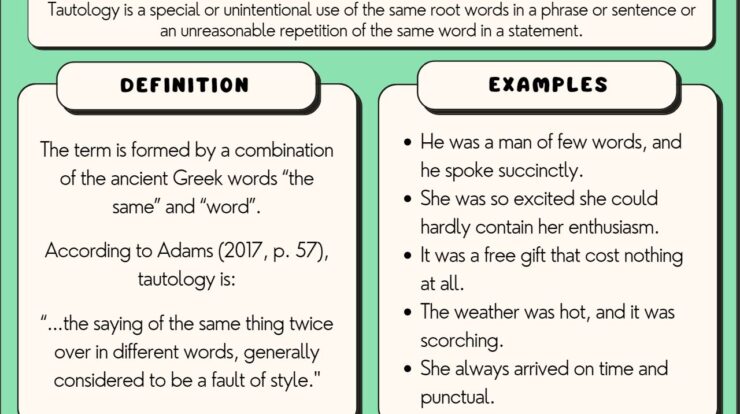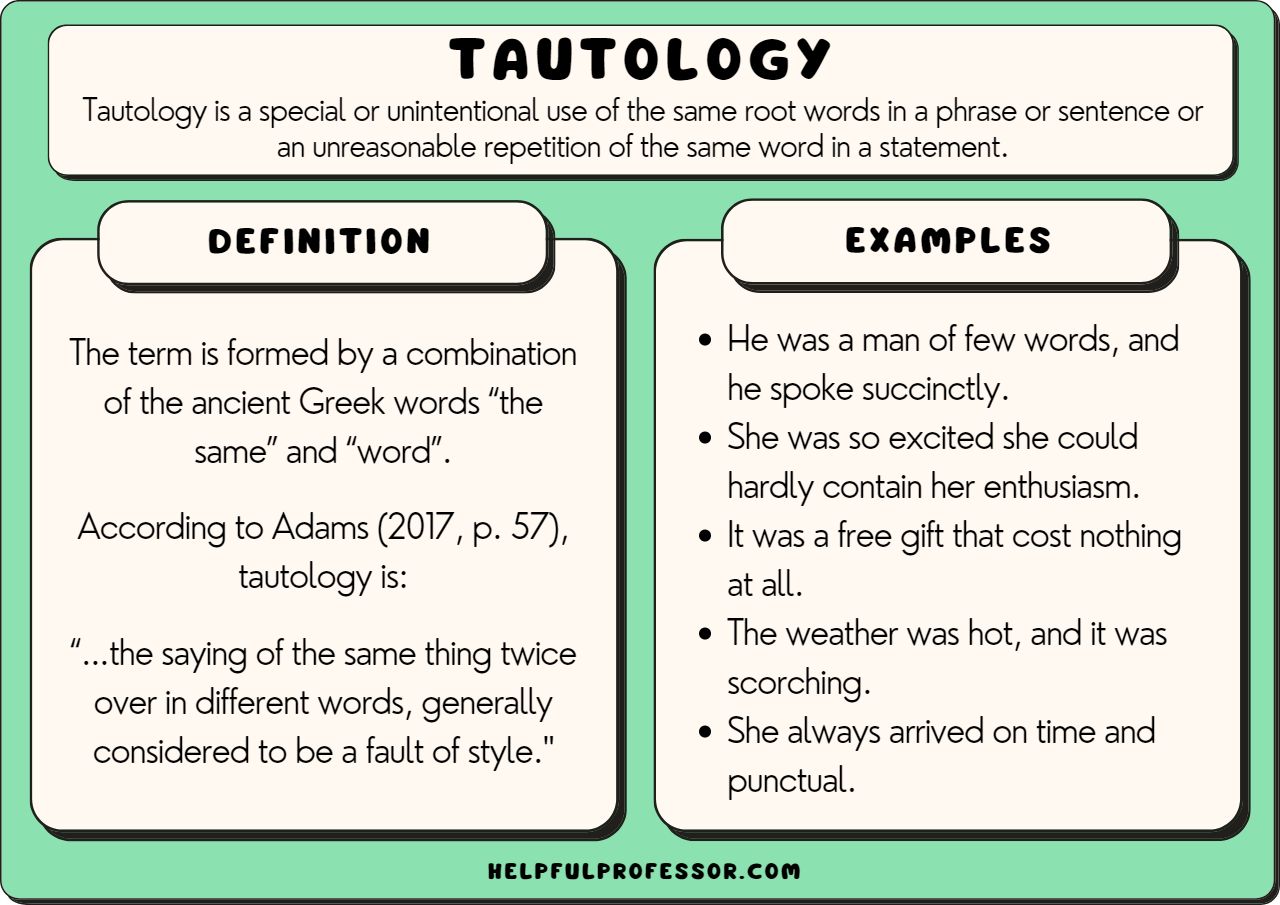
Tautological definitions, a cornerstone of logic and philosophy, are linguistic constructs that define a term using itself or its derivatives, creating a closed loop of meaning. This exploration delves into the intriguing world of tautological definitions, examining their types, applications, and ethical implications.
These definitions, often characterized by their circular nature, present both advantages and limitations in various fields. Their simplicity and precision can be valuable in certain contexts, yet they also raise questions about the validity and usefulness of knowledge derived from such constructs.
Tautological Definitions
Tautological definitions, also known as circular definitions, are definitions that restate the term being defined using different words. While they may appear to provide an explanation, they fail to convey any new information or clarify the concept’s meaning.
Consider the following example: “A tautological definition is a definition that restates the term being defined using different words.” This definition simply rephrases the term “tautological definition” without adding any additional understanding.
Types of Tautological Definitions
There are several types of tautological definitions:
- Circular definitions:These definitions define a term by referring back to itself. For example, “A circle is a round shape.”
- Trivial definitions:These definitions simply restate the term being defined in different words. For example, “A dog is a canine.”
- Uninformative definitions:These definitions provide no new information about the term being defined. For example, “A chair is a piece of furniture.”
Applications of Tautological Definitions
Tautological definitions are sometimes used in specific contexts:
- Logic:In logic, tautologies are statements that are always true. Tautological definitions can be used to define logical terms.
- Mathematics:In mathematics, tautologies are equations that are always true. Tautological definitions can be used to define mathematical terms.
- Philosophy:In philosophy, tautologies are statements that are true by virtue of their form. Tautological definitions can be used to define philosophical terms.
Ethical and Philosophical Considerations, Tautological definition
The use of tautological definitions raises ethical and philosophical concerns:
- Misleading:Tautological definitions can be misleading because they appear to provide an explanation when they do not.
- Imprecise:Tautological definitions do not provide precise definitions because they fail to convey any new information.
- Circular reasoning:Tautological definitions can lead to circular reasoning, where a term is defined in terms of itself.
Last Recap

In conclusion, tautological definitions offer a unique lens through which to examine the nature of language, truth, and knowledge. While they provide a convenient and concise means of defining concepts, their limitations and ethical implications must be carefully considered. Understanding the nuances of tautological definitions is essential for critical thinking and informed decision-making in diverse fields.
Questions Often Asked
What is the primary characteristic of a tautological definition?
Tautological definitions define a term using itself or its derivatives, creating a circular loop of meaning.
What are the potential drawbacks of using tautological definitions?
Tautological definitions can be criticized for their lack of power and potential to obscure the true nature of a concept.
In what fields are tautological definitions commonly employed?
Tautological definitions are used in logic, mathematics, philosophy, and other disciplines where precise and concise definitions are crucial.





